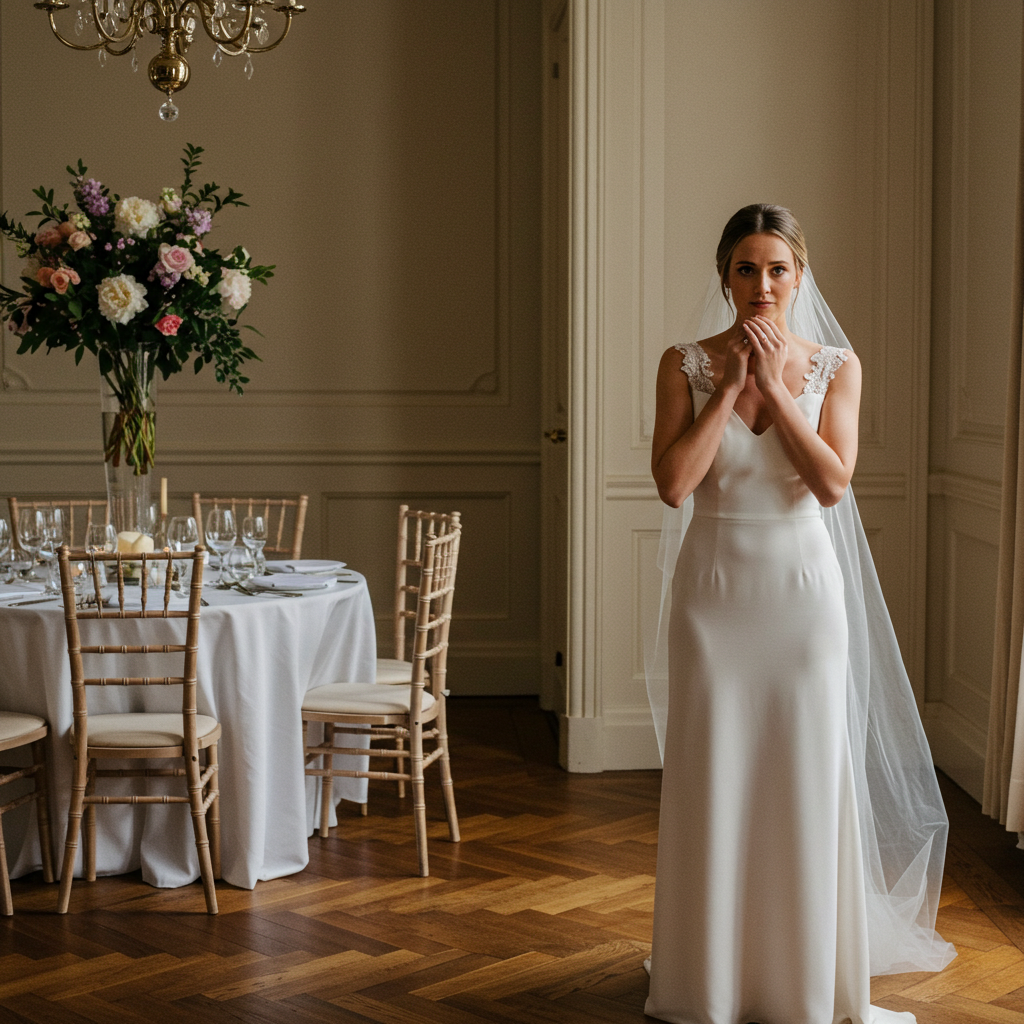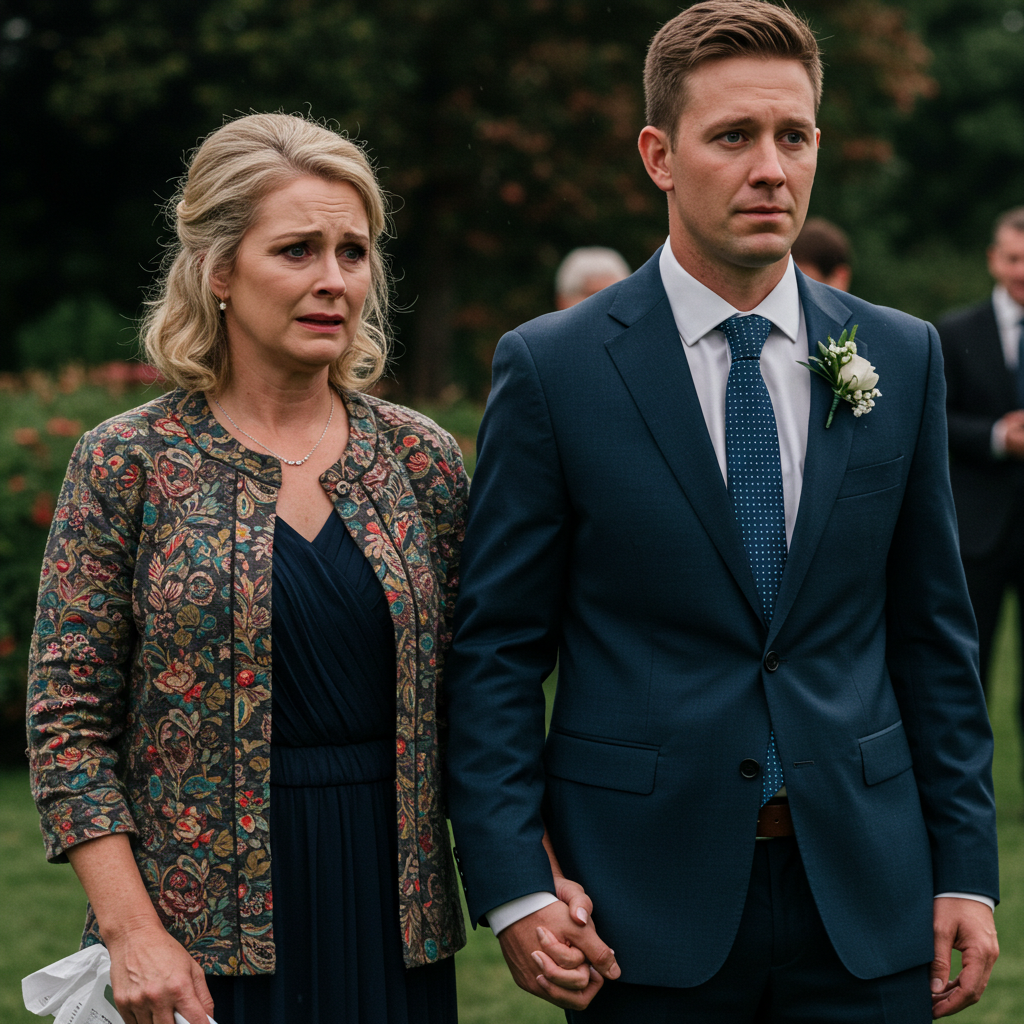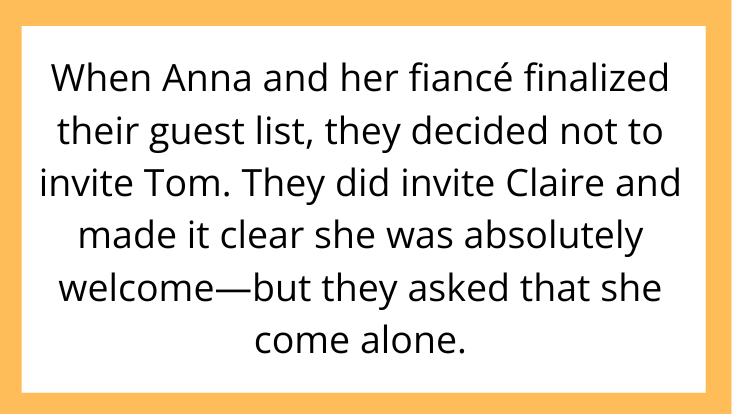AITAH for Not Inviting My Sister’s New Husband to My Wedding?
Weddings are supposed to be joyful celebrations of love, but sometimes they expose the cracks in family relationships. In today’s AITAH scenario, a bride-to-be faced backlash for deciding who was welcome to witness her vows—and her story has the internet divided.
Let’s take a closer look at what happened and why so many people have strong opinions about it.
The Situation: A New Husband, An Old Grudge

The original poster—let’s call her Anna—shared on r/AITAH that she is 28 years old and getting married in a few months. Her older sister, Claire, 31, recently remarried a man named Tom.
According to Anna, Tom has a history of making offensive jokes and treating service staff poorly. He also had a loud argument with Anna’s fiancé at a family barbecue last year. Since then, they’ve kept their distance.
When Anna and her fiancé finalized their guest list, they decided not to invite Tom. They did invite Claire and made it clear she was absolutely welcome—but they asked that she come alone.
Anna wrote that she expected Claire to be upset, but she didn’t anticipate the fallout that followed.
The Fallout: Family Accusations and Hurt Feelings

Claire was furious. She told Anna she was “disrespecting her marriage” and “trying to control her.” Other relatives chimed in to say it was unfair to exclude a spouse.
Anna explained her reasons plainly: she didn’t want her wedding overshadowed by drama or awkwardness. She also felt Tom hadn’t made any effort to apologize or take responsibility for his past behavior.
Claire’s response? She threatened not to attend the wedding at all if Tom wasn’t included.
Anna turned to Reddit to ask: Am I the villain for excluding my sister’s husband, even though I invited her?
The Case for Anna: Protecting the Peace

Many commenters sided with Anna, arguing that brides and grooms have the right to decide who attends their wedding. Their reasons included:
-
Prioritizing Comfort: Anna and her fiancé didn’t want a repeat of past confrontations.
-
Avoiding Disruption: Tom’s behavior toward staff and guests had caused issues before.
-
Personal Boundaries: No one is entitled to an invitation, even if they married into the family.
As one user put it:
“Your wedding is about you and your partner. If someone has repeatedly disrespected you, you don’t owe them a seat at your table.”
The Case for Claire: Standing by Her Partner

Others empathized with Claire’s perspective:
-
Marriage is a Package Deal: For many people, excluding a spouse feels like excluding the couple.
-
Potential for Reconciliation: A wedding could have been an opportunity to mend fences.
-
Family Unity: Singling out Tom could deepen the rift in the family long-term.
A commenter noted:
“If you want a relationship with your sister, you can’t expect her to leave her husband at home.”
Weddings and Guest Lists: Who Really Gets to Decide?

This scenario underscores a tricky truth: weddings are personal. While it may seem harsh to leave someone off the guest list, the couple paying for and hosting the event gets to make that choice.
Still, it’s worth thinking about the long-term impact. A wedding lasts one day—family relationships, ideally, last a lifetime.
Navigating the Conflict: Is There Middle Ground?

Some Reddit users offered potential compromises:
-
Setting Clear Expectations: Allowing Tom to attend, but making it clear that any disrespectful behavior would not be tolerated.
-
Inviting Them to the Reception Only: Including him in the celebration without the more intimate ceremony.
-
Meeting Before the Wedding: Giving Tom an opportunity to apologize and clear the air.
Ultimately, Anna felt none of these options would guarantee peace—and decided to stick to her boundary.
The Takeaway: Boundaries Aren’t Always Popular

Whether you agree with Anna or not, her story is a reminder that setting boundaries often comes with consequences. Sometimes, protecting your peace means risking someone else’s disappointment.
Was she the villain? Many said no—she was just a bride who knew her limits.



